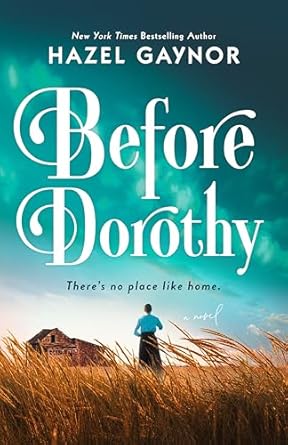Copyright stands
Mailbox Monday is now hosted monthly by a different blog. Here is the official blog of Mailbox Monday. Here is what I received last week:
So Near by Liza Gyllenhaal
Won from Life in the Thumb
In the aftermath of a devastating loss, Cal and Jenny Horigan's marriage is unraveling. Both are plagued by guilt, unable to seek comfort from one another. Burdened by remorse, they begin to lose sight of the love that once anchored them-together with their sense of right and wrong.
As the Horigans try different ways to deal with their pain, a new acquaintance seems to offer the support they desperately need-though at times they are unsure whether his guidance is leading them back to each other or further apart...
Say Not What If by Andrew Friedman
Received for review from the author
"Say Not What If" is a nearly 10,000 word story written as a long rhyming poem. I have never seen a story written in this format. It has characters and dialogue just like a regular story, and is extremely easy to read and understand, regardless of whether you have a GED or a PHD. You can read it in about an hour, so it doesn't require a lot of time.
“Say Not What If” is about a man on death row, and has as its theme the concept that time is our most valuable commodity. As someone once said, “waste anything but time, because we really are promised no tomorrows.” This theme is explored through the life of a man who sacrifices his marriage and everything else for his career. He realizes much too late the terrible consequences of this decision, and then desperately tries to regain those lost years by making a much worse choice. The resolution of this latter choice involves an additional examination of the concepts of accountability and responsibility, redemption, and the morality of the death penalty.
Humiliation by Wayne Koestenbaum
Won from NY Journal of Books
Wayne Koestenbaum considers the meaning of humiliation in this eloquent work of cultural critique and personal reflection.
The lives of people both famous and obscure are filled with scarlet-letter moments when their dirty laundry sees daylight. In these moments we not only witness the reversibility of “success,” of prominence, but also come to visceral terms with our own vulnerable selves. We can’t stop watching the scene of shame, identifying with it and absorbing its nearness, and relishing our imagined immunity from its stain, even as we acknowledge the universal, embarrassing predicament of living in our own bodies. With an unusual, disarming blend of autobiography and cultural commentary, noted poet and critic Wayne Koestenbaum takes us through a spectrum of mortifying circumstances—in history, literature, art, current events, music, film, and his own life. His generous disclosures and brilliant observations go beyond prurience to create a poetics of abasement. Inventive, poignant, erudite, and playful, Humiliation plunges into one of the most disquieting of human experiences, with reflections at once emboldening and humane.
Books that I purchased from Barnes and Noble:
Her Fearful Symmetry by Audrey Niffenegger
Audrey Niffenegger's spectacularly compelling second novel opens with a letter that alters the fate of every character. Julia and Valentina Poole are semi-normal American twenty-year-olds with seemingly little interest in college or finding jobs. Their attachment to one another is intense. One morning the mailman delivers a thick envelope to their house in the suburbs of Chicago. From a London solicitor, the enclosed letter informs Valentina and Julia that their English aunt Elspeth Noblin, whom they never knew, has died of cancer and left them her London apartment. There are two conditions to this inheritance: that they live in it for a year before they sell it and that their parents not enter it. Julia and Valentina are twins. So were the estranged Elspeth and Edie, their mother.
The girls move to Elspeth's flat, which borders the vast and ornate Highgate Cemetery, where Christina Rossetti, George Eliot, Radclyffe Hall, Stella Gibbons and Karl Marx are buried. Julia and Valentina come to know the living residents of their building. There is Martin, a brilliant and charming crossword-puzzle setter suffering from crippling obsessive compulsive disorder; Marijke, Martin's devoted but trapped wife; and Robert, Elspeth's elusive lover, a scholar of the cemetery. As the girls become embroiled in the fraying lives of their aunt's neighbors, they also discover that much is still alive in Highgate, including - perhaps - their aunt.
Half Broke Horses by Jeannette Walls
Lily Casey Smith, this novel's feisty Texas protagonist, is a frontier teacher, a rancher, a rodeo rider, a poker player, and bootlegger. In Half Broke Horses, she survives droughts, tornados, floods, poverty, and whatever else fate can throw against her. Based on author Jeannette Walls's grandmother, Lily is a plausible character because she has a voice that synchronizes with her history. This novel lives up to the still gathering acclaim for Walls's novel The Glass Castle.
What makes us happy? It's not wealth, youth, beauty, or intelligence, says Dan Buettner. In fact, most of us have the keys within our grasp. Circling the globe to study the world's happiest populations, Buettner has spotted several common principles that can unlock the doors to true contentment with our lives.
Working with leading researchers, Buettner identifies the happiest region on each of four continents. He explores why these populations say they are happier than anyone else, and what they can teach the rest of us about finding contentment. His conclusions debunk some commonly believed myths: Are people who have children happier than those who don't? Not necessarily—in Western societies, parenthood actually makes the happiness level drop. Is gender equality a factor? Are the world's happiest places to be found on tropical islands with beautiful beaches? You may be surprised at what Buettner's research indicates.
Unraveling the story of each "hotspot" like a good mystery, Buettner reveals how he discovered each location and then travels to meet folks who embody each particular brand of happiness. He introduces content, thriving people in Denmark, in Singapore, in northeastern Mexico, and in a composite "happiest place in America." In addition, he interviews economists, psychologists, sociologists, politicians, writers, and other experts to get at what contributes to each region's happiness.
Buettner's findings result in a credible, cross-cultural formula and a practical plan to help us stack the deck for happiness and get more satisfaction out of life. According to Buettner's advisory team, the average person can control about forty percent of his or her individual happiness by optimizing life choices. These aren't unreasonable demands on a person's lifestyle, and they often require only slight changes. They fall into three categories that make up the way we live our lives: the food we eat, the way we exercise, and the social networks we foster. It's all about nourishing the body and the spirit. Heeding the secrets of the world's happiness all-stars can help us make the right choices to find more contentment in our own lives and learn how to thrive.




















1 comment:
Lots of new books! I especially love the cover on the first one...enjoy them all.
Post a Comment